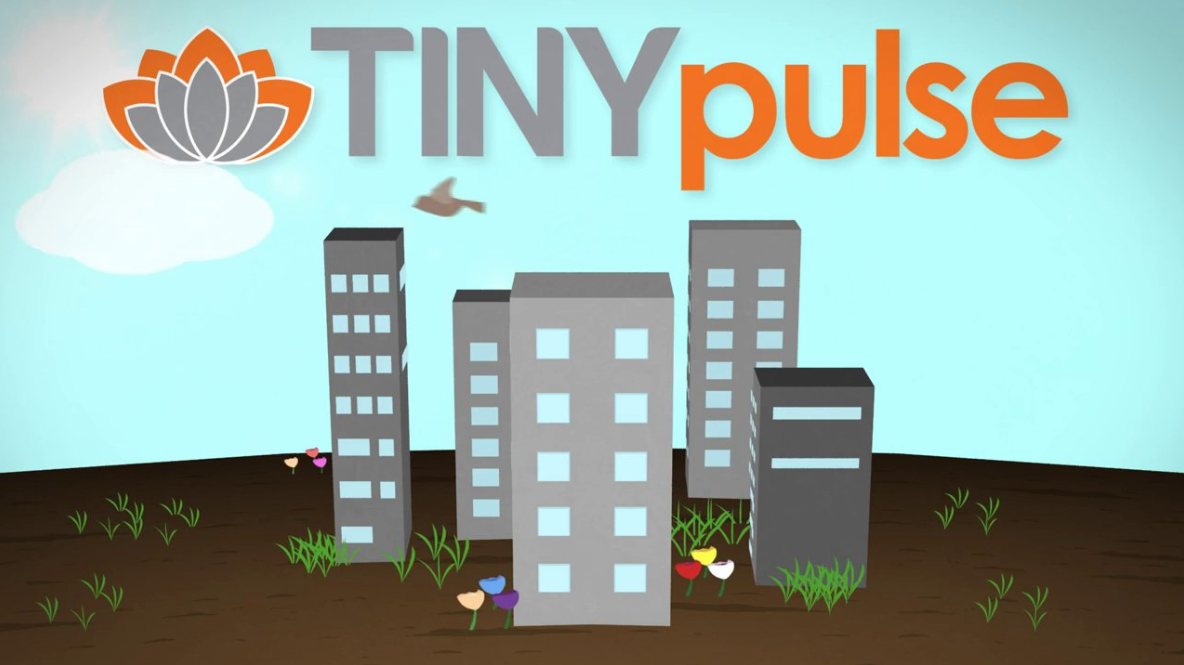Good employees are hard to come by and even harder to replace. David Niu’s TinyPulse is an employee survey program that is designed to make all of your employees (including your best) feel better, let them speak their voices, increase their retention and transform your company culture.
The Bermuda Triangle of finding good employees is the job interview. Let’s be honest: Anyone interviewing for a job is going to try their hardest to hide their faults and bad traits. You could just be straight-forward and ask them “what do you think your greatest weakness is?” Anyone who responds with “working too hard” is probably full of it, but even still, it’s virtually impossible to tell how good someone will be at their job through a conversation and some stats on a piece of paper.
But good employees are found every day all over the world. They are hardly golden tickets, or a dime a dozen; they are everywhere. The question is, are you respecting them?
Gallup’s Q12 employee engagement survey proved that “the best workplaces give their  employees a sense of purpose, help them feel they belong and enable them to make a difference”. A lot of great employees decide to leave their company’s because they don’t feel like they belong; they’ve been shut out of the company’s vision, which gives them no motivation to work past their requirements. It makes them think “why should I work hard if I don’t even know what I’m working towards?”
employees a sense of purpose, help them feel they belong and enable them to make a difference”. A lot of great employees decide to leave their company’s because they don’t feel like they belong; they’ve been shut out of the company’s vision, which gives them no motivation to work past their requirements. It makes them think “why should I work hard if I don’t even know what I’m working towards?”
Other reasons great employees leave company’s include no empathy towards their work ethic, lack of sharing the company vision, no effective motivation towards the future, and a straight-laced, fun-free company culture.
Don’t Lose Sight of what Matters Most: Your Employees
Retaining your all-star employees is probably not at the top of your list of concerns, but it should be because replacing them takes a massive amount of time and money. Plus, it’s really hard to find someone who can serve as the MVP of the office. It takes 6 months to a year just to get accommodated to the flow and style of your work environment, become comfortable and really start producing great things. Additionally, a sudden turn-over of a great employee who has proven to understand the company’s goals and business processes is detrimental to the organization and the team they lead.
Now here’s the funny thing: Most of the time, you’re completely unaware of how unhappy your greatest employees have become. Every single day, they work hard, produce more than they’re expected of and reach goals long before the set date. But you have a lot on your plate, and giving pats on the back is not on the daily to-do-list. Eventually, your slapped in the face with a two-week resignation due to the lack of acknowledging their efforts and accomplishments.
If you knew it was going to come down to this, would you have worked more pats-on-the-back into your daily routine? Of course you would have. After all, no one likes a movie with an unhappy ending (unless it’s Scarface or The Godfather).
A Solution Designed for Prevention
David Niu has made it his goal to fix this problem within companies and make it entirely preventable. Niu himself has suffered this situation of losing a great team member when no sign of unhappiness was in sight, and has exclaimed that he wished there was some sort of barometer that measured how happy employees were so he could have addressed the situation before it came to a sudden leave.
This is why Niu has developed TinyPulse, an employee satisfaction survey that is designed to give companies information on the happiness of their employees and what employers can do better to improve company morale. It is “a lightweight solution that captures anonymous feedback from your team to reveal insights, trends and opportunities to improve retention, culture and results”.
Usually organizations conduct employee satisfaction surveys once a year; TinyPulse emails employees one question every single week, and the question is based around morale, benefits, retention and career progression. The questions are designed to be fun and quirky so employees don’t view them as a weekly chore. For example, one question is “if our company were a fortune cookie, what would the message say?”. The only question routinely repeated is “on a scale of 1 to 10, how happy are you at work?”.
FastCompany gives six reasons why TinyPulse is so effective.
1. Anonymous Feedback
Anonymous feedback allows employees to say exactly what they’re feeling without fears of termination. Some employees might have some very aggressive concerns that could strike some sensitive chords with their employers. Niu wants to encourage employees to express their feelings to the fullest without having doubts or concerns. Additionally, the randomness gives each vote equality and no ones voice drowns out the other.
2. Everyone Views the Results
“Our philosophy is that it’s incumbent upon the leader to share [the results]. The choice by companies to use TinyPulse inherently signals an organization’s inclination toward transparency and sharing more information versus less”. – David Niu
Although it’s kind of a risky move to ask company employees how happy they are and then share it with everybody, it creates an environment of trust and transparency, which will result in increasing employee retention and loyalty.
3. Employees see Resolution
TinyPulse is designed for managers to respond to feedback from employees anonymously, without knowing who they’re responding too. We’ve all had a managerial decision affect us negatively in someway, but we don’t speak up for fear of losing our jobs.
Niu said in an interview with FastCompany “When managers reply [anonymously], people know immediately that they’ve been heard their feedback is taken seriously. And having an influential voice like this is a basic human need that’s really important to people”. This style of anonymous feedback from both sides establishes consistent, non-judgmental communication, which is the key to creating stronger employee-manager relationships.
4. Crediting your Co-workers
At the end of each weekly question, TinyPulse gives employees the options to credit other co-workers for things they have done to excel the company or work environment. The praise is anonymous and designed to create a motivational effect on the company culture.
5. Strengthen Leadership Effectiveness
Different senior managers have vouched for the effectiveness of TinyPulse on their tendencies as a leader. Michael Dougherty of Amazon said “It’s a constant reminder not to take your eye off the most important part of your job as a leader, which is to take care of the people you serve”.
Amy Balliet, CEO of Killer Infographics said “TinyPulse has forced me to face my problems head-on that I would have easily ignored with all the work on my plate. It also forced me to reconsider my priorities as a business owner and focus on building a company with good values”.
Trevor Micklow is a business writer and content curator based out of Chicago, IL. US. He specializes in digital strategies, social media, psychology, executive education and business school related topics. He has been working and coordinating the general content of IntelligentHQ’s business school directory, which gives key information and programme details on the top business schools in the world. He has a BS, Psychology from Central Michigan University.












